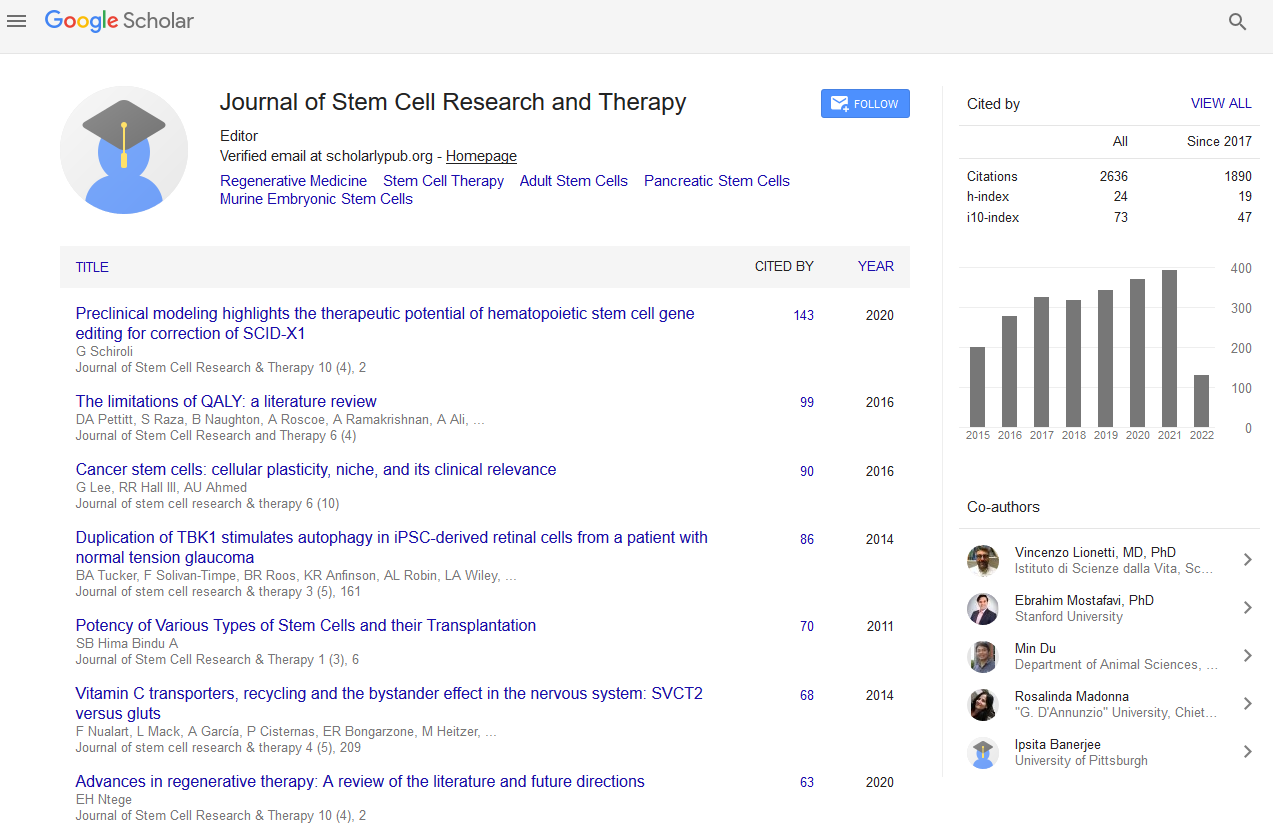Indexed In
- Open J Gate
- Genamics JournalSeek
- Academic Keys
- JournalTOCs
- China National Knowledge Infrastructure (CNKI)
- Ulrich's Periodicals Directory
- RefSeek
- Hamdard University
- EBSCO A-Z
- Directory of Abstract Indexing for Journals
- OCLC- WorldCat
- Publons
- Geneva Foundation for Medical Education and Research
- Euro Pub
- Google Scholar
Useful Links
Share This Page
Journal Flyer

Open Access Journals
- Agri and Aquaculture
- Biochemistry
- Bioinformatics & Systems Biology
- Business & Management
- Chemistry
- Clinical Sciences
- Engineering
- Food & Nutrition
- General Science
- Genetics & Molecular Biology
- Immunology & Microbiology
- Medical Sciences
- Neuroscience & Psychology
- Nursing & Health Care
- Pharmaceutical Sciences
Abstract
Hypoxic Preconditioning Increases the Neuroprotective Effects of Mesenchymal Stem Cells in a Rat Model of Spinal Cord Injury
Takeshi Imura, Mayumi Tomiyasu, Naofumi Otsuru, Kei Nakagawa, Takashi Otsuka, Shinya Takahashi, Masaaki Takeda, Looniva Shrestha, Yumi Kawahara, Takahiro Fukazawa, Taijiro Sueda, Keiji Tanimoto and Louis Yuge
The functional deficit caused by Spinal Cord Injury (SCI) is clinically incurable and current treatments have limited effects. Previous studies have suggested that cell-based therapy using Mesenchymal Stem Cells (MSCs) pre-treated with drugs or gene transfection have possible therapeutic effects. Hypoxic preconditioning is one of the most likely treatments of cell-based therapy without altering genes; however, few reports are available about Hypoxia-Preconditioned MSCs (H-MSC) transplantation for SCI. Here we demonstrate the therapeutic potential of H-MSC transplantation using SCI model rats. H-MSC expressed significantly higher mRNA levels of vascular endothelial growth factor-1 and carbonic anhydrase IX, hypoxia inducible genes. H-MSC transplantation resulted in remarkable functional improvement in the SCI model rats compared to no transplantation. Expression of brainderived neurotrophic factor and the autophagy-associated marker beclin1 mRNA was significantly upregulated in rat spinal cord that underwent H-MSC transplantation. Furthermore, conditioned medium of the H-MSC significantly prevented cell death of NG108-15 cells exposed to oxidative or inflammatory stress. These results suggest that hypoxia preconditioning is an effective strategy for SCI in cell-based therapy using MSCs.


